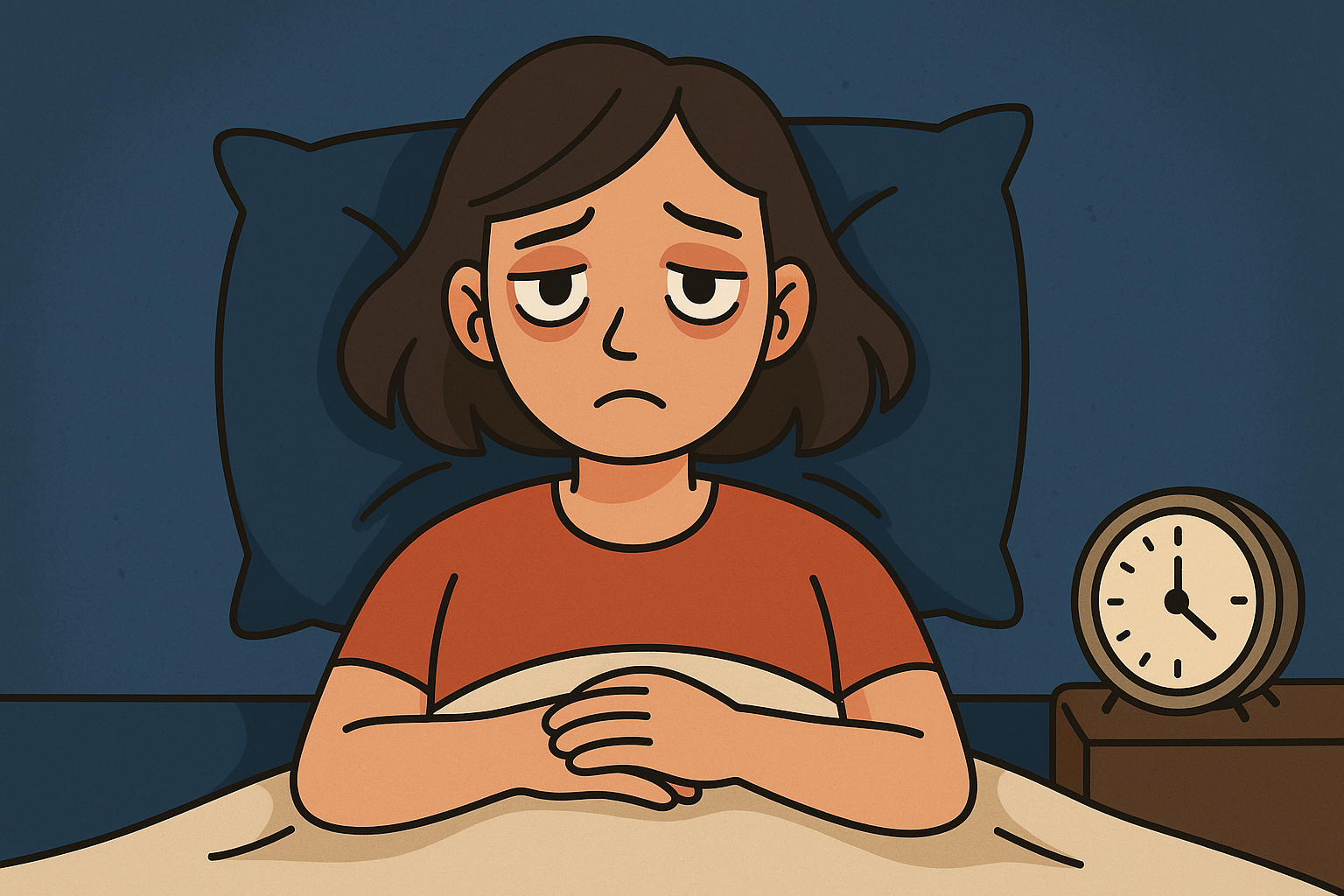Discover a new level of personalized health support for Myasthenia
• Learn more about your disease
• Be more confident in dealing with symptoms
• Access the knowledge of other patients

Insomnia isn’t just about having trouble falling asleep—it’s a condition that affects how you function, feel, and cope in daily life. Millions live with chronic insomnia, yet many still feel isolated, uninformed, or overwhelmed by conflicting advice online. If that sounds familiar, you're not alone—and there are smarter ways to manage it.
What Is Chronic Insomnia?
Chronic insomnia is defined as difficulty falling asleep, staying asleep, or waking too early—at least three times a week for three months or longer1. It can lead to:
- Daytime fatigue or brain fog
- Irritability or low mood
- Trouble concentrating
- Increased sensitivity to stress
Insomnia often coexists with other health conditions like anxiety, chronic pain, or perimenopause, which can make it harder to untangle the root cause2.
Why Is Insomnia So Difficult to Manage?
From over-the-counter sleep aids to sleep hygiene tips, the journey to better rest is often a trial-and-error process. People frequently report:
- Trying multiple routines without results
- Getting vague advice or feeling dismissed during consultations
- Struggling to track what helps and what doesn’t
The lack of clear, ongoing support between appointments can make people feel like they’re managing it all on their own3.
What People With Insomnia Actually Need
According to ongoing patient conversations on mama health, people with insomnia often want:
- More personalized, digestible guidance
- Help connecting their symptoms to possible triggers
- Examples of real-world strategies others have used
- A better way to prepare for medical visits
A Smart Companion Between Appointments
mama health is a free, AI chatbot created by doctors to support people with chronic conditions like insomnia. It is not a medical device, and it does not provide diagnoses or treatment.
Instead, it helps users:
- Describe symptoms in their own words
- Receive evidence-based insights relevant to similar user experiences
- Identify patterns and track progress over time
- Download a personalized summary to share with their doctor
It’s private, always available, and built to help people better understand what they’re going through—without replacing medical care.
What Makes mama health Different?
Unlike generalized articles or overwhelming forums, mama health:
- Offers tailored conversations, not one-size-fits-all content
- Reflects insights from thousands of anonymized patient interviews
- Focuses on real stories, not speculation
- Helps users feel more informed, confident, and supported
Many find it easier to talk about their insomnia once they’ve used mama health to reflect on their experience first.
Final Thoughts
Chronic insomnia doesn’t have a one-step fix. But support tools like mama health can help you track, reflect, and gain clarity over time—so you can make the most of your medical appointments and sleep strategies.
If you’re ready to better understand your insomnia journey, mama health is a good place to start.
Discover a new level of personalized health support for Myasthenia
• Learn more about your disease
• Be more confident in dealing with symptoms
• Access the knowledge of other patients

Sources
1. American Academy of Sleep Medicine. (2022). What is insomnia? Retrieved from https://sleepeducation.org/insomnia/
2. National Institutes of Health. (2023). Insomnia: Causes and treatments. Retrieved from https://www.nhlbi.nih.gov/health/insomnia
3. mama health. (2024). Real-world insights from chronic insomnia patients. Retrieved from https://www.mamahealth.com/insomnia




